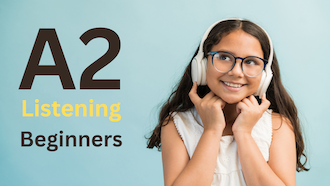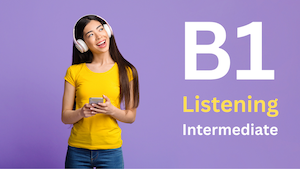Distributives
Read and listen to four conversations using the grammar.
Conversation 1 | PDF Worksheet
Woman: Hello, how can I help you?
Man: Hi. I'd like to know more about your hotel. What are the rooms like?
Woman: We have standard and deluxe rooms.
Man: Can you tell me about both?
Woman: Sure. They're similar, but the deluxe rooms are bigger and have a living room.
Man: What are the amenities? What comes with each room?
Woman: Both rooms have a flat screen TV, a mini fridge, a coffee maker, and free WiFi.
Man: That's good. Does every room have a balcony? I need fresh air.
Woman: Yes, all rooms have a small balcony.
Man: Okay. And how about bathrooms? Does either room option have a bathtub?
Woman: No, neither room has a bathtub, but both have a large shower.
Man: I see. And do both rooms have a large bed?
Woman: Yes, all the rooms have a large bed.
Man: Perfect. And what about the view? What rooms have a view of the ocean?
Woman: There are standard and deluxe rooms on both sides. Some face the ocean, some face the city. Both views are very nice, however.
Man: I see. Thank you. In that case, I'll book a standard room with a view of the ocean if you have one available.
Woman: It looks like we do. Let me assist you with that.
Conversation 2 | PDF Worksheet
Man: Where do you buy your clothes?
Woman: I buy my clothes at the mall.
Man: Why don't you buy your clothes online?
Woman: I like to try on the clothes before I buy them.
Man: I see. Do all the shops have a changing room?
Woman: Most do, but not all.
Man: Does the mall have many shops for men?
Woman: Not on every floor, but there are some on the second floor.
Man: I'll have to check it out. I usually buy all my clothes online.
Woman: Well, next time I go, you can come with me.
Man: That sounds fun. I'd like that.
Conversation 3 | PDF Worksheet
Man: I hear you visit Thailand often.
Woman: Yes, I love the country. I go there every chance I get. I love the beaches there.
Man: What is the weather like in Thailand? I want to visit there and stay on the beach.
Woman: Thais joke that there are three seasons: hot, hotter, and hottest.
Man: Really. What is the best time to go? I like hot weather, but not really hot.
Woman: Well, each season is pretty warm, but the dry season is not too bad.
Man: When is the dry season?
Woman: It is from December to March. It's sunny almost every day and cool at night.
Man: What about the other seasons?
Woman: The rainy season is from August to October.
Man: Oh, is that a bad time to go?
Woman: No, not really. It does rain every day, but only for a few hours in the evening.
Man: So, there's the wet season and the dry season. What other season is there?
Woman: There's the hot season from March to August. That's when it's really hot.
Man: So, if I go to Thailand, I guess I should go in the dry season.
Woman: Perhaps, but that's when all the tourists come, so all the beaches are crowded.
Conversation 4 | PDF Worksheet
Man: How many students do you teach?
Woman: Every semester, I have 100 students with 25 students in each class.
Man: That's a lot of students. Do you know all their names?
Woman: Yes, each and every one, but it takes a while to learn them.
Man: Wow. How can you remember them all?
Woman: I try to call on each student every day.
Man: That still sounds very difficult.
Woman: I also try to learn a detail about each student. That helps a lot.
Man: How long does it take to learn all the students' names?
Woman: For most classes, I can learn all the names in about a week.
Man: Wow, that is impressive.
Woman: Not really. Anyone can do it.
Distributives
- Each car is special.
- Each room has air condintioning.
- Each student has a book.
- Each car contains a navigation system.
- Every child needs attention.
- Every car on the street is parked.
- Every student in the class passed the exam.
- He bought every book in the store.
With Plural Nouns
- All the students are present.
- All the cars were damaged by the storm.
With Uncountable Nouns
- All the water is clean.
- All the cake was eaten.
With Plural Nouns
- No students came to the test.
- No tables were available.
With Uncountable Nouns
- We have no time.
- There is no food in the fridge.
- Both my parents are doctors.
- Both my tires are flat on my bike.
- Have you met both my sisters?
- I have two math classes and I failed both classes.
- I ate both apples.
- I ate them both.
- I read both books.
- I read them both.
- I ate all the cookies.
- I ate them all.
- I read all the books.
- I read them all.
- We can stay or leave. Either option is fine.
- They have steak or fish. Either meal will do.
- Both my sisters are smart. Either one can help you.
- I bought two shirts, but I don't like either one.
- We can take a bus or a taxi. Neither option is cheap.
- My apartment has two rooms. Neither room has a window.
- There are two computers in my office. I use neither one.
- There were two desserts. Neither one looked good.
Gap Fill: Listen to the audio. Type in the correct word!

















